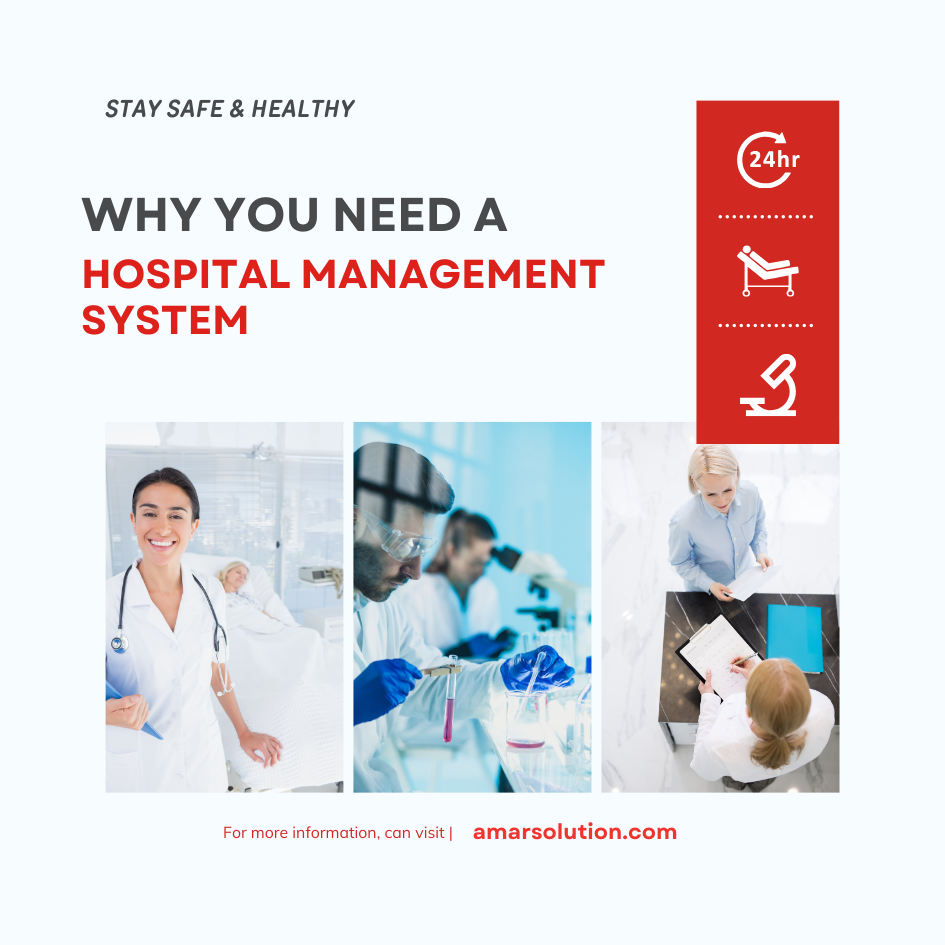Why You Need A Hospital Management System

In today’s healthcare environment, healthcare providers are facing significant challenges in delivering quality care while managing their operations efficiently. One solution to this problem is a hospital management system (HMS), a comprehensive software solution that enables healthcare providers to manage all aspects of their operations, from patient care to administrative tasks, in a seamless and efficient manner.
A Hospital Management System (HMS) is a comprehensive software solution that enables healthcare providers to manage all aspects of their operations, from patient care to administrative tasks, in a seamless and efficient manner. The system is designed to streamline workflows, reduce paperwork, and improve patient outcomes. Here are some reasons why every healthcare facility needs an HMS.
Better Patient Care:
The primary objective of any healthcare facility is to provide quality care to patients. A hospital management system helps providers achieve this by allowing them to access all patient information in one place. Doctors can easily access a patient’s medical history, lab results, and treatment plans to provide more accurate and effective care. It also allows for better communication between healthcare providers and patients, making it easier to track their progress and ensure that they are receiving the best care possible.
Improved Efficiency:
A hospital management system helps healthcare providers automate administrative tasks, such as scheduling appointments, managing medical records, and billing. This reduces the time and effort required to complete these tasks manually, freeing up staff to focus on more critical tasks, such as patient care. By improving efficiency, healthcare facilities can also reduce wait times, improve patient satisfaction, and ultimately enhance their reputation.
Cost-Effective:
A hospital management system can help healthcare facilities save money in various ways. For example, it can reduce the need for paper-based record-keeping, saving on printing and storage costs. Additionally, it can help providers identify areas where they can reduce waste and unnecessary spending. With better management of resources, healthcare providers can operate more cost-effectively while still providing quality care to patients.
Improved Decision-Making:
A hospital management system provides healthcare providers with real-time data on patient care, resource utilization, and financial performance. This allows for better decision-making regarding the allocation of resources, staffing, and patient care. By providing accurate and timely information, healthcare providers can make informed decisions that improve patient outcomes, reduce costs, and enhance the overall efficiency of the facility.
Compliance with Regulations:
Healthcare providers must comply with various regulations and standards to ensure that they provide safe and effective care to patients. A hospital management system can help healthcare facilities achieve compliance with these regulations by providing a platform for tracking and managing compliance-related activities. It also allows providers to generate reports and audits to demonstrate their compliance with these regulations, reducing the risk of penalties and legal action.
Improved Patient Engagement:
Patient engagement is critical to improving outcomes and enhancing patient satisfaction. A hospital management system can help providers engage with patients by providing a platform for patient communication, appointment scheduling, and medication reminders. It also allows patients to access their medical records and test results, empowering them to take an active role in their healthcare.
Conclusion:
a hospital management system is an essential tool for any healthcare provider looking to improve patient care, enhance efficiency, and reduce costs. With the ability to streamline workflows, improve decision-making, and comply with regulations, healthcare facilities can provide safe and effective care to patients while achieving operational excellence. By adopting an HMS, healthcare providers can not only meet the needs of their patients but also improve their bottom line.











